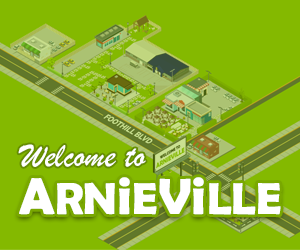Three Echo Park business owners, who already pay hourly employees over the minimum wage, weigh in on the issue, the struggle and the bigger picture.
California kicked off 2024 with a minimum wage increase from $15.50 to $16 per hour, coming on the heels of soaring inflation rates in 2023, which hit a 40-year high in 2022. While hourly workers rejoice, some Los Angeles business owners have mixed reactions to the new demand, even worrying the raise won’t make a difference in the long run.
Reece Scelfo, owner of Brady’s Bakery in Echo Park, is thrilled workers will be paid a living wage to meet California’s high cost of living. The young business owner has always paid his employees above minimum wage to attract candidates with competitive pay. However, with the new hike, he worries the base salary he offers his workers will no longer be enough.
“As minimum wage creeps up, for us to continue to have our competitive edge for retaining good employees, [our pay] would need to go up too,” he tells Los Angeles magazine.
While the bakery owner believes workers deserve higher wages, he’s concerned that raising the minimum wage will only be a bandaid on a much more insidious issue.
“It’s not just minimum wage that needs to be the point of interest here, right? It’s it’s other economic factors as well.” He continued, “The level of taxes in California and cost of living in California are all things to look at, too.”
“I think if we’re talking about maintaining a quality of life for people, the minimum wage is, but one spoke in the wheel. I think it’s part of the solution. But it’s not the solution,” he said.
In 2020, Justine Hernandez opened Just What I Kneaded, a vegan bakery in Frogtown. From the start, Hernandez has always paid her employees well above minimum wage with a base salary of $18 per hour. She values her workers’ specialized skill sets and wants them to feel like a career at her bakery is a “viable option” to make a living. However, paying her employees well doesn’t come without struggle, and she wishes she could do more.
“It’s definitely stressful to maintain, but if you want to have a good business, you’re going to have to pay your people, and we just try to figure it out,” Hernandez said.
That stress may be a little higher for fast food businesses, which will have to pay employees $20 starting in April under new California law — one that many critics of the minimum wage hike are blaming for two large Pizza Hut franchise operators laying off about 1,200 delivery drivers throughout the state this year by early February.
“Our franchisees independently own and operate their restaurants in accordance with local market dynamics and comply with all federal, state, and local regulations while continuing to provide quality service and food to our customers via carryout and delivery,” Pizza Hut’s parent company, Yum! Brands, told Business Insider when the publication broke the layoff news.
Meanwhile, McDonald’s and Chipotle have already said they’re passing the cost onto the consumer by raising food prices in the state. And consumers are already feeling it; a small french fry and a cheeseburger costs over $7 now after tax. Marcus Walberg, who operates four L.A. Fatburger locations with his family, told Business Insider he’s not laying off any employees, but they’re not hiring anymore, either, and will be tighter on hours, while also raising prices for customers. “It’s a scary thing,” he said, “because customers are already complaining that prices are too high.”
Brady’s Bakery owner Scelfo also wonders how much is too much to charge customers for baked goods, like cookies, to offset profit losses from wage increases. “We can continue to raise the price, but there’s only so much we can put back on to the customer,” he tells Los Angeles. “Because a customer’s price perception of a cookie is not going up as fast as minimum wage and cost of goods.”
Oren Pius is another small business owner who already pays his employees over the minimum wage at his Echo Park record store cafe, Cosmic Vinyl (ranked by Los Angeles as one of the five best indie record stores in the city). But he thinks that even with the raise, the minimum wage is “probably still too low.”
Pius makes his living working full-time as a mental healthcare provider, but he continues to run the cafe on the side even though he doesn’t “take any money out of it.”
“Getting by on minimum wage is probably impossible. There’s no way I could do it. Me and my wife both have full-time jobs. I have a baby. After childcare and making a good wage, we’re still left with nothing at the end of every paycheck.”
The record aficionado feels that workers’ pay should reflect how much profit a company brings in.
“I think companies that bring in a certain amount of revenue and profit a year should have to pay their employees more than a company that doesn’t break even every year.”
At the end of the day, though, Pius’ main goal is to keep the lights on and take care of his employees, even though he wishes he could pay them more.
“My employees get paid, and the doors stay open. And I don’t take any money out of it, so I’m able to give a little more. They make money in tips, and hopefully, they’re happy.”
________________________________________________________________________
By ELLIE RUDY




